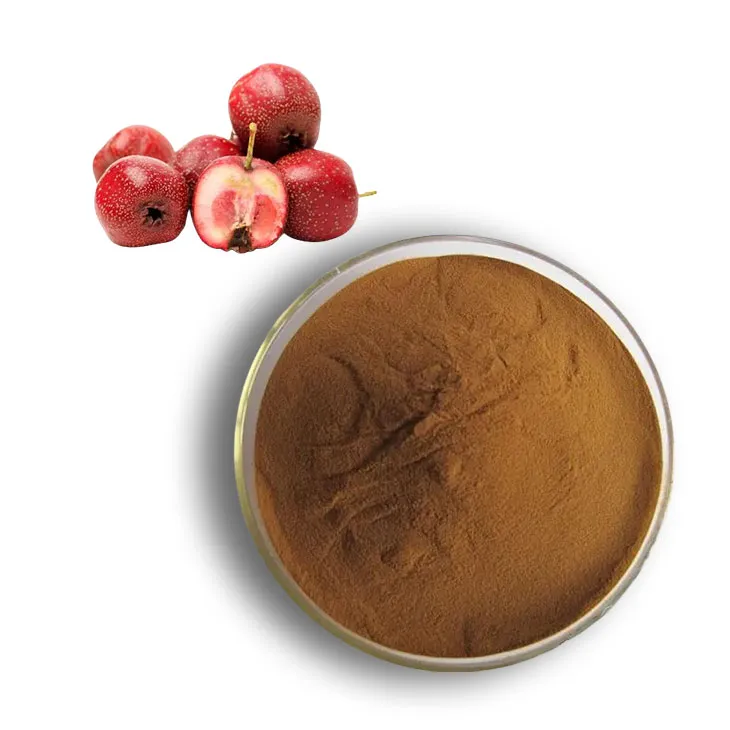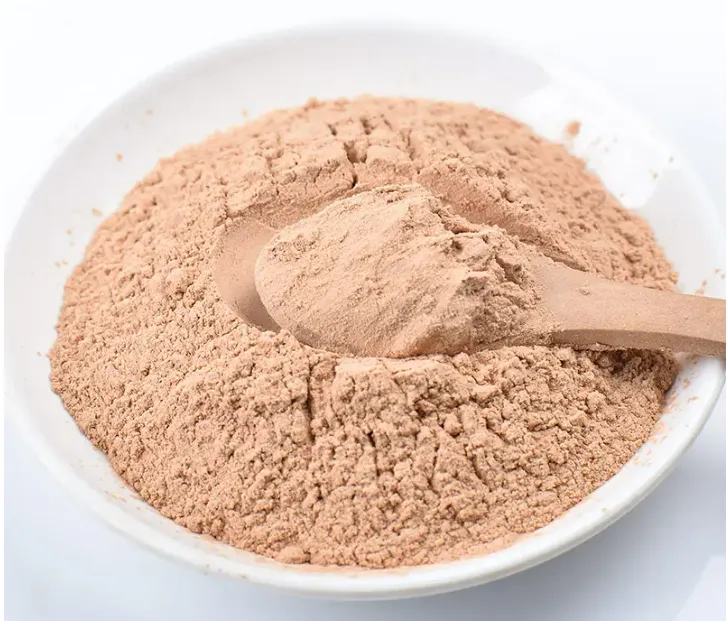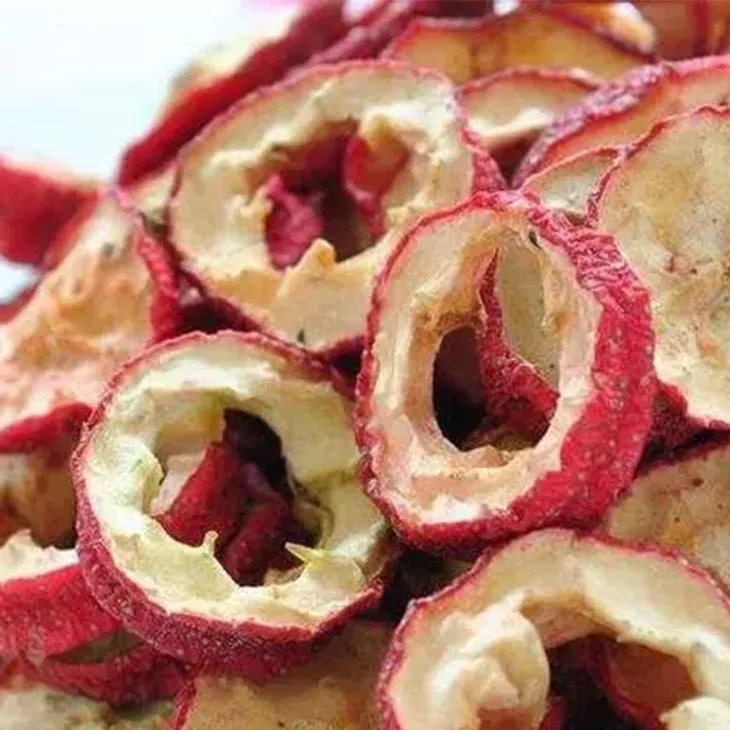- 0086-571-85302990
- sales@greenskybio.com
Benefits of Hawthorn Extract in Cattle Feed.
2024-11-13

1. Introduction
In the world of cattle farming, the quality of feed plays a crucial role in the overall health, growth, and productivity of the animals. One interesting addition to cattle feed that has been gaining attention is Hawthorn Extract. Hawthorn, a plant known for its various medicinal properties in traditional medicine, is now being explored for its potential benefits when included in the diet of cattle. This article will delve into the multiple advantages that Hawthorn Extract can bring to cattle, ranging from enhancing their immune system to improving meat quality and reducing stress.

2. Boosting the Immune System
The immune system is the body's natural defense mechanism against diseases. In cattle, a strong immune system is essential for their well - being and survival in the often - challenging farming environment. Hawthorn Extract contains a variety of natural compounds that can have a positive impact on the immune system of cattle.
2.1. Bioactive Compounds
Hawthorn is rich in bioactive compounds such as flavonoids, proanthocyanidins, and phenolic acids. These compounds have antioxidant properties. Antioxidants play a vital role in the immune system by neutralizing free radicals. Free radicals are unstable molecules that can damage cells and tissues, making the animal more susceptible to diseases. By scavenging these free radicals, the bioactive compounds in hawthorn extract help to maintain the integrity of cells and support the overall function of the immune system.
2.2. Immune Response Enhancement
The natural compounds in hawthorn extract also seem to directly enhance the immune response. They can stimulate the production of immune cells such as lymphocytes and macrophages. Lymphocytes are responsible for recognizing and attacking foreign invaders like bacteria and viruses, while macrophages are involved in engulfing and destroying these pathogens. By increasing the number and activity of these immune cells, cattle are better equipped to fight off diseases, reducing the need for antibiotics and other medications.
2.3. Disease Resistance
With a strengthened immune system, cattle are more resistant to a wide range of diseases. This includes common infections such as respiratory diseases, which can spread rapidly in a herd. For example, in a study comparing two groups of cattle, one fed with a regular diet and the other with a diet supplemented with hawthorn extract, the group receiving the extract showed a significantly lower incidence of respiratory infections over a period of several months. This not only improves the health of the individual animals but also reduces the economic losses associated with treating sick cattle and potential spread of diseases within the herd.

3. Improving Meat Quality
The quality of meat is an important factor in the cattle industry. Consumers are increasingly demanding high - quality meat in terms of texture, flavor, and nutritional value. Hawthorn extract can contribute to these aspects of meat quality in several ways.
3.1. Fat Deposition
The extract may influence the way fat is deposited in the cattle's body. Fat deposition affects the marbling of the meat, which is highly desirable in terms of both taste and appearance. Hawthorn extract can potentially regulate the metabolism of fats in the animal's body. It may encourage a more even distribution of fat, leading to better - marbled meat. This is achieved through its impact on lipid metabolism - related genes and enzymes. For instance, it may affect the activity of lipogenic enzymes, which are involved in the synthesis of fats.
3.2. Muscle Development
In addition to fat deposition, hawthorn extract can also play a role in muscle development. Muscle mass is an important determinant of meat yield. The extract may contain components that stimulate muscle growth. It could enhance protein synthesis in muscle cells, similar to how certain growth - promoting agents work. This results in larger and more developed muscles in cattle, which not only increases the amount of meat but also improves its texture. Meat from well - muscled animals is often more tender and juicy, which is highly appealing to consumers.
3.3. Flavor and Nutritional Profile
The influence of hawthorn extract on fat deposition and muscle development can also have an indirect impact on the flavor of the meat. Well - marbled meat with a good muscle - to - fat ratio generally has a more desirable flavor. Moreover, hawthorn itself contains certain nutrients and compounds that can be transferred to the meat. For example, some of the antioxidants present in the extract may be retained in the meat, increasing its nutritional value. This can be an added advantage in the market, as consumers are more health - conscious and are likely to prefer meat with enhanced nutritional profiles.

4. Stress Reduction
Cattle in farming operations are exposed to various stressors, and stress can have a negative impact on their growth, productivity, and overall health. Hawthorn extract can be a valuable tool in reducing stress in these animals.
4.1. Types of Stress in Cattle
There are several types of stress that cattle may experience. Environmental stress can be caused by extreme temperatures, poor ventilation, or overcrowding. Management stress is related to handling procedures such as transportation, vaccination, and weaning. These stressors can disrupt the normal physiological functions of the animals, leading to decreased feed intake, weight loss, and increased susceptibility to diseases.
4.2. Mechanisms of Stress Reduction
The compounds in hawthorn extract can act on the nervous system of cattle to reduce stress. Some of the bioactive compounds have a calming effect. They can modulate the release of stress hormones such as cortisol. Cortisol is a hormone that is released in response to stress and can have negative effects on the animal's metabolism, immune system, and growth. By reducing the excessive release of cortisol, hawthorn extract helps the cattle to maintain a more stable physiological state, enabling them to better cope with stressors.
4.3. Impact on Growth and Productivity
When stress is reduced, cattle are more likely to have normal feed intake patterns and better growth rates. They can convert feed more efficiently into body mass, which is crucial for maximizing productivity. For example, in a farming trial, cattle supplemented with hawthorn extract showed less weight fluctuation during periods of environmental stress compared to those without the supplement. This stability in growth is beneficial for farmers as it ensures a more consistent supply of high - quality cattle for the market.
5. Conclusion
In conclusion, hawthorn extract offers a range of benefits when included in cattle feed. It can enhance the immune system of cattle, making them more resistant to diseases, improve meat quality in terms of fat deposition, muscle development, flavor, and nutritional value, and reduce stress, which in turn promotes stable growth and productivity. As the demand for high - quality cattle products continues to grow, the use of hawthorn extract in cattle feed could be a promising approach for farmers and the livestock industry as a whole. However, further research is still needed to fully understand the optimal dosage, long - term effects, and potential interactions with other feed components.
FAQ:
How does hawthorn extract improve the immune system of cattle?
The natural compounds in hawthorn extract play a role in strengthening the immune response of cattle. These compounds interact with the body's defense mechanisms, enhancing the ability to recognize and fight off pathogens, thus improving the overall immune system.
Can hawthorn extract directly affect the fat deposition in cattle?
Yes, it may have an influence on fat deposition in cattle. The components in hawthorn extract can potentially modulate the metabolic processes related to fat storage and utilization, which in turn affects the amount and distribution of fat in the animals' bodies.
How does hawthorn extract help in reducing stress in cattle?
The exact mechanism is not fully understood yet. However, it is believed that the bioactive substances in hawthorn extract may interact with the physiological stress - response systems in cattle. By doing so, it can regulate hormonal levels or neural signals associated with stress, thereby mitigating the negative impacts of stress.
Is there an optimal dosage of hawthorn extract for cattle feed?
The optimal dosage may vary depending on factors such as the age, weight, and health status of the cattle. Generally, it needs to be determined through scientific experiments and field trials. Too little may not produce the desired effects, while too much could potentially have adverse effects.
Does hawthorn extract have any side effects on cattle?
When used within the appropriate dosage range, there are no known major side effects. However, if the dosage is excessive or if there are interactions with other substances in the feed, there could be potential issues. Continuous monitoring and proper feed formulation are necessary to ensure the safety of using hawthorn extract in cattle feed.
Related literature
- The Role of Hawthorn Extract in Livestock Nutrition"
- "Beneficial Effects of Hawthorn - Based Additives in Cattle Farming"
- "Hawthorn Extract: A Promising Feed Supplement for Cattle Health and Productivity"
- ▶ Hesperidin
- ▶ citrus bioflavonoids
- ▶ plant extract
- ▶ lycopene
- ▶ Diosmin
- ▶ Grape seed extract
- ▶ Sea buckthorn Juice Powder
- ▶ Beetroot powder
- ▶ Hops Extract
- ▶ Artichoke Extract
- ▶ Reishi mushroom extract
- ▶ Astaxanthin
- ▶ Green Tea Extract
- ▶ Curcumin Extract
- ▶ Horse Chestnut Extract
- ▶ Other Problems
- ▶ Boswellia Serrata Extract
- ▶ Resveratrol Extract
- ▶ Marigold Extract
- ▶ Grape Leaf Extract
- ▶ blog3
- ▶ blog4
- ▶ blog5
-
Organic Tongkat Ali extract powder factory.
2024-11-13
-
How to make powder with ashwagandha extract.
2024-11-13
-
Rosehip extract manufacturers from China.
2024-11-13
-
The best cat's claw extract in nature.
2024-11-13
-
Chinese Dandelion Leaf Extract Suppliers.
2024-11-13
-
Propolis Extract Powder
2024-11-13
-
Oyster Mushroom Extract Powder
2024-11-13
-
White Peony Extract
2024-11-13
-
Shikonin
2024-11-13
-
Sugarcane Extract
2024-11-13
-
Garcinia Cambogia Extract
2024-11-13
-
Bayberry Extract
2024-11-13
-
American Ginseng Root Extract
2024-11-13
-
Honeysuckle Pollen
2024-11-13
-
Scutellaria Extract
2024-11-13





















